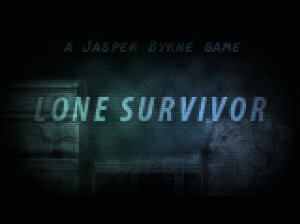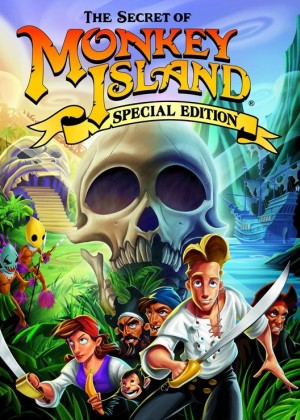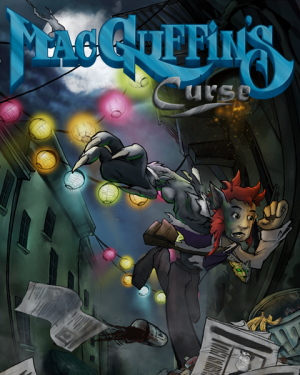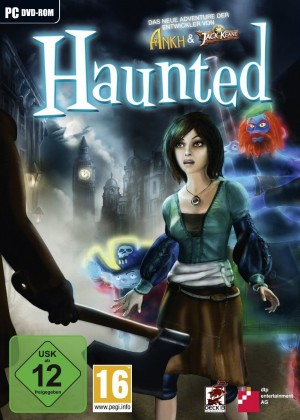GDC 2008 – Two Panel Discussions on Stories in Games
Events Coverage
Reporting from E3, GDC, AdventureX, Gamescom and other gaming events around the world
I had the pleasure of being part of the Adventure Gamers contingent of people attending GDC this year, and was even more pleased to discover that there would be not only one, but two panel discussions on stories in games taking place. Being a die-hard enthusiast of all things related to interactive storytelling, I resolved to attend them both and eagerly absorb every single potential tidbit of wisdom I could gain therefrom, as well as whatever insights they would bring to this beloved genre of ours.
The first panel, Stories Best Played: Deconstructing the Best Interactive Storytelling, took place on Wednesday and featured four prominent game designers: Steve Meretzky of Blue Fang Games, Marc Laidlaw of Valve Software, Ken Rolston of Big Huge Games, and Richard Rouse III of Midway Games. As I sat down and made myself comfortable, the thing I noticed immediately was how quickly the lecture room was filling up, to the point where it soon became standing room only. Trying to ignore the fact that I was now uncomfortably squished in my chair due to lack of space, it dawned on me that wow, so many people actually CARE about stories in games! Then, 2:30 PM finally rolled around, and the panelists began to talk.
They began with a thesis: the best game storytelling can stand up to the best storytelling in any other medium. Then, they set out to prove the validity of this thesis by each citing two games which, they felt, were exemplary of "the best game storytelling". Owing to the different backgrounds of each speaker, the results were vastly diverse. Meretzky, who some readers may remember as a prominent creator of Infocom text adventures, discussed Loom and The Fool's Errand. Laidlaw, whose background lies in FPS titles, selected Thief and Phoenix Wright. Rolston, an RPG designer, chose Planescape: Torment and Chronicles of Riddick, and Rouse put forth Bioshock and Ico.
The main point made about all of these games was that, in some way, shape, or form, much of the story was actually told through the gameplay, as opposed to being sprinkled in between through cutscenes. Specific examples ranged from the musical spell-casting interface of Loom, which itself was a musically-themed game, to the emotional-relationship-as-gameplay-mechanic used in Ico, where you spent most of the game helping a young woman around obstacles, to dramatic changes in the appearance and emotional state of each character you questioned on the witness stand in Phoenix Wright. Of course, given such diversity, there was plenty of dispute and argument to be had by panelists as to the extent to which each combination of gameplay and story held meaning for them, personally. Two people complained that Phoenix Wright's story was too linear to truly be "interactive", and Steve Meretzky in particular said that he loved Bioshock's story, but found the first-person shooter gameplay to be such a barrier to his enjoyment that he gave up and read the rest of the story on a blog instead -- an argument that I myself can very much relate to. Still, it was very interesting to see all these personal viewpoints... and even more pleasing for me to see a couple of adventure games in the mix. (Though admittedly, several games that I myself would deem exemplary of interactive storytelling such as Grim Fandango and Discworld Noir didn't quite make the cut.)
At the end of the panel, the question as to whether the aforementioned thesis was true was evaluated, and the overwhelmingly agreed-upon answer was a cautiously-optimistic "not yet". While the examples given were said to be getting close, interactive storytelling as a whole still has quite a ways to mature as a medium before it will stand up to the best storytelling in existence, and a handful of reasons were briefly skimmed upon as to how it can reach that point, from making better use of interactivity to not using so many in-jokes that only geeks will understand.
Alas, since this was, after all, a discussion aimed to be more about the past than the future, greater amounts of speculation would have to wait until the next day's panel, The Future of Story in Game Design...
On Thursday morning, I walked into the very same room as before, slightly late, to a crowd that was just as packed. (Fortunately, I did manage to find a place to sit.) This time around, it was a panel called The Future of Story in Games, and by now I've learned that whenever I hear the words "future of..." before anything, I should be preparing myself for a fun-filled brouhaha of wild speculation accompanied by vitriolic arguments from various opposing schools of thought. I could tell that I would be far from disappointed in this regard, as the panel contained an even more diverse set of speakers than the first one, from freelance writers to people from id Software, Silicon Knights, Polar Productions, and several other companies. (Names, for those interested, are... (deep breath) Matt Costello, Tim Willits, Denis Dyack, Mary DeMarle, Matthew Karch, Michael Hall, and Deborah Todd.)
The meat of the argument was as such: given that the industry is ultimately driven by markets (this is the part where the experimental freeware game designer in me cringes, but let's not get into that here), what do gamers and the rest of the general public actually want? The most technologically-oriented developers say "gameplay"; people play games because they want to be able to "do something cool", and story should therefore play a secondary role, supporting this coolness factor. Those on the opposite side of the spectrum, with backgrounds in screenwriting, say "story"; people want to get sucked into an engaging plot and memorable characters, meaning that games will never be as massively popular as other media until they get those things right. Film, after all, was far more lauded for the newness of its technology in its infancy, yet today, it's matured into an entertainment medium first and foremost, and it is argued that games are now heading in that very same direction.
In truth, it seems to me that the answer lies in an amalgam of both views, and a handful of panelists gave good reasons for this. First of all, technology is important because it potentially makes for better storytelling; we are already seeing companies develop frameworks that enable more expressive characters and more immersive worlds to explore. Also, one must bear in mind that stories are not just told through writing alone, but through visuals, sound, and yes, gameplay. Just as in the games mentioned in the first panel, game stories have far more impact when all the pieces fit together to form one cohesive whole. Therefore, it makes no sense at all to rank one discipline above another; they are all equally important!
Since, as I mentioned above, several of the panelists were also screenwriters, it was inevitable that further comparisons of games to film and television would be made. One point they brought up that really stuck for me personally was the notion that genres would potentially no longer be classified by their gameplay styles, e.g. "first-person shooter", "RPG", and heck, even "adventure game", and instead, similarly to movies, be known by their subject matter: drama, action, horror, et cetera. I found that this was very much true with regards to the way I think of my own gaming preferences -- rather than liking adventure games as a whole, I would say, for instance, that I gravitate very much towards comedy games, many of which have adventure-style gameplay but not necessarily always so -- even though I do still think that boxing everything into a genre of any kind can sometimes be limiting. Still, grouping games in terms of what they are about appears to have more potential for the evolution of gameplay styles that synergize with the story they are trying to tell, and this is an innovation I would most definitely love to see more of.
Finally, I must reiterate that the fact that people are even discussing how important stories are in games -- and in such well-attended panel discussions, too -- is in itself a reason to be optimistic, because it means that someday, we might just end up with stories in games that stand up to and even surpass the stories told in other media. Given that I myself gravitate to adventure games because of the way that many of them have historically fused story and gameplay, I would say that this would be a definite asset to the genre... and far more importantly, to gaming as a whole.
This article originally appeared in two parts in Adventure Gamers now-defunct blog.












